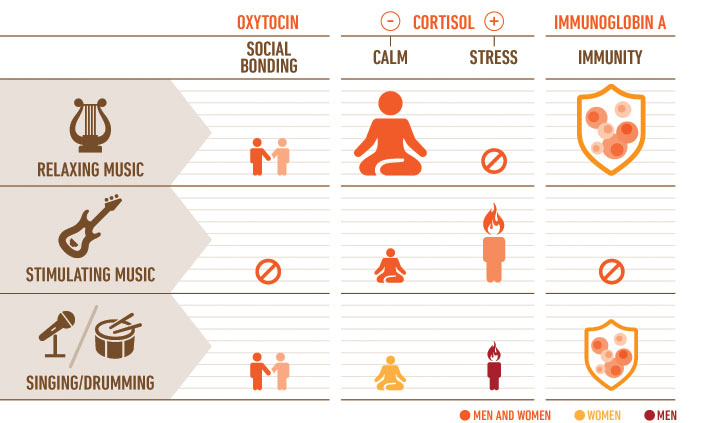IN THE FIRST LARGE-SCALE REVIEW OF 400 RESEARCH PAPERS about the neurochemistry of music, psychology professor Daniel Levitin and postdoctoral researcher Mona Lisa Chanda note that playing and listening to music have clear benefits for mental and physical health.
Listening to music increases production of the social bonding hormone oxytocin and the immune system-boosting antibody immunoglobulin A, and relaxing music can reduce levels of the stress hormone cortisol. Results are ambivalent for the effects of stimulating music, however: some studies show that cortisol levels increase in response to stimulating music while others have found a decrease. A similar variation shows up in cortisol levels of singers: in women, cortisol levels decrease whereas in men, cortisol levels increase.
Research, it seems, can show us how the most intricate life mechanisms work. Figuring out the why — do personality differences account for the variation in how the body responds to music? why do men seem to find singing stressful? — offers new avenues for exploration.
The research was funded by the Natural Sciences and Engineering Research Council of Canada and the Social Sciences and Humanities Research Council.

